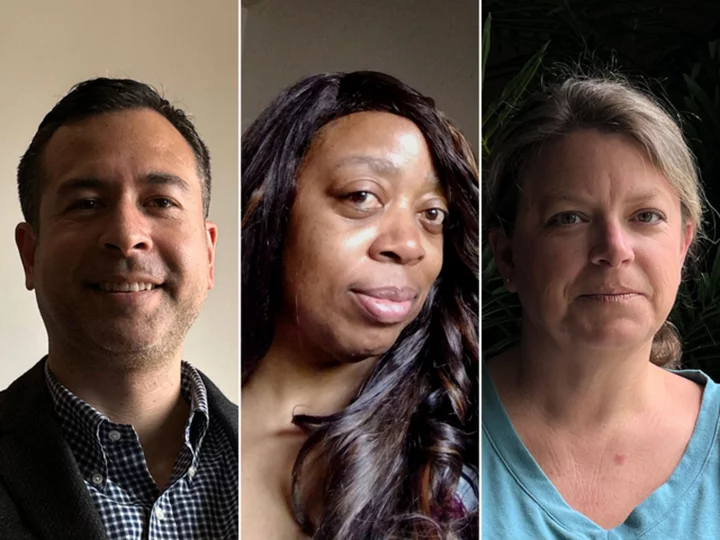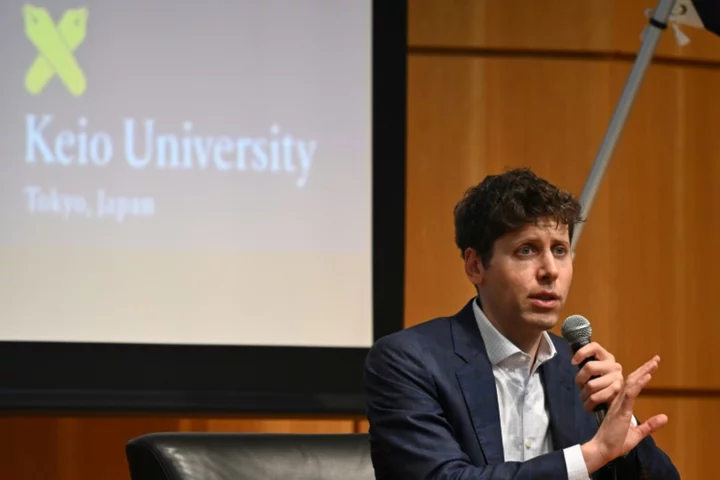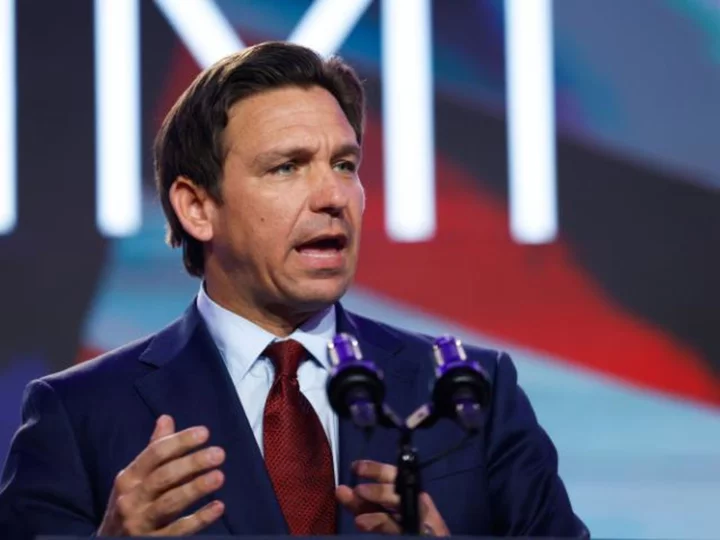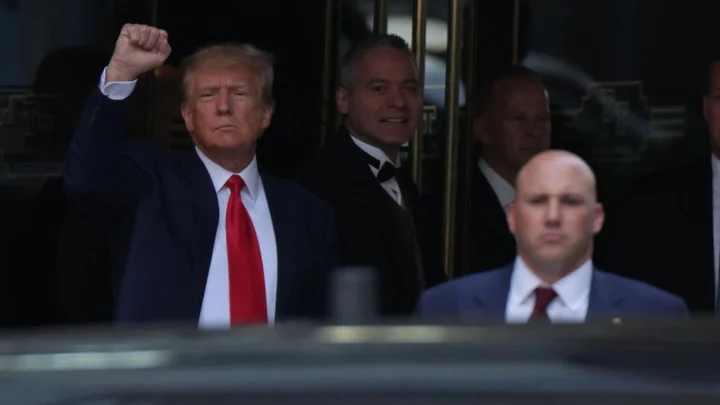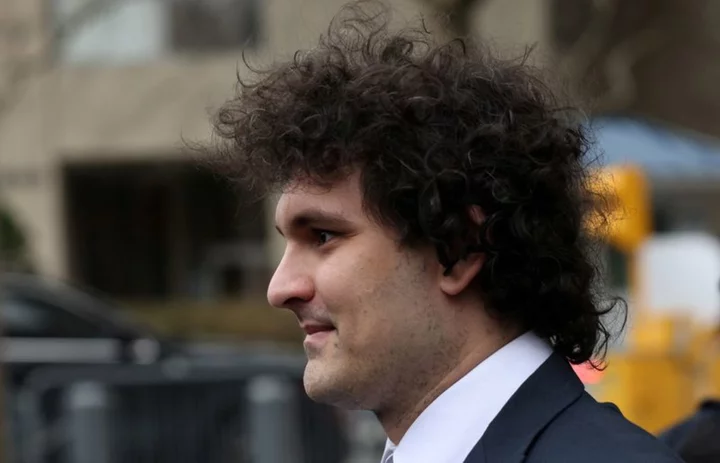Even though the Supreme Court struck down President Joe Biden's student loan forgiveness program, more debt will be canceled during his time in office than under any other president.
The Biden administration has already canceled a record $66 billion in student loan debt for nearly 2.2 million borrowers.
While his one-time student loan forgiveness program would have been far reaching, promising up to $20,000 of debt cancellation for eligible borrowers and wiping out roughly $400 billion overall, the Department of Education has made some lesser-known changes to existing student loan forgiveness programs.
The administration has made it easier for people to qualify for the Public Service Loan Forgiveness program, which grants relief for public sector workers after they've made 10 years of qualifying payments.
It has also made more people eligible for the borrower defense to repayment program that cancels student loan debt for borrowers who attended a school that may have misled them or violated certain state laws, as well as made loan discharges automatic for more borrowers who are permanently disabled.
Here's how three people received student loan forgiveness due to the changes the Biden administration has made to existing federal programs.
Relief after attending a misleading for-profit college
Margo Myles, 52, got a letter from the Department of Education in late March saying that nearly $25,000 of her federal student loan debt had been canceled.
Myles had borrowed the money in the early 2000s to earn an associate degree in paralegal studies, but the education didn't pay off. She found work in the legal field a few years after finishing school but was earning just $9 an hour -- not enough to pay her bills and her student loans.
"I was trying to reorganize my life. For me, and for so many other students, this should have been a door," Myles said of her degree program.
Instead, she defaulted on her student loans. The default dinged her credit and resulted in the garnishment of her federal tax refunds. Myles said she wasn't allowed to request her academic transcript while her loans were in default, preventing her from enrolling elsewhere.
The Department of Education later found that schools owned by the now-defunct Corinthian Colleges -- which include Myles' alma mater, known at the time as Florida Metropolitan University -- engaged in "widespread and pervasive misrepresentations" about students' employment prospects, including guarantees they would find a job as well as the ability to transfer credits.
Under the borrower defense program, borrowers can apply for debt relief if they were misled by their college. Last June, the Department of Education announced that any student who attended a Corinthian-owned college would automatically qualify for the benefit. The move made 560,000 more borrowers eligible.
About nine months later, Myles learned that she was one of the qualifying borrowers and her debt was discharged. The Department of Education said it would request credit reporting agencies to repair her credit within 45 days, according to the letter she received.
Myles, who now lives in Cheyenne, Wyoming, and works in insurance, plans to continue her education by pursuing a bachelor's degree and then a law degree.
"I've always wanted to go back to school. I don't care if I'm 60 when I finish," she said.
Teacher gets forgiveness and a $5,000 refund
Applying for the Public Service Loan Forgiveness program was a yearslong, frustrating process for Paige Vass, a special education teacher in Virginia.
The PSLF program cancels remaining federal student loan debt for eligible government and nonprofit workers after they have made 120 qualifying monthly payments, which takes at least 10 years.
But the program has been riddled with problems. Many people reached 10 years of repayment believing they qualified for cancellation of their remaining debt, but instead found out that they had the wrong kind of loan or were making payments in the wrong kind of repayment plan.
Vass applied after teaching for more than 10 years, but her paperwork was returned several times, for things like having an incorrect date or a signature in the wrong place.
She decided to try applying one more time last year after the Biden administration temporarily expanded eligibility for the program with a one-year waiver.
"My fingers were crossed, but I also thought I might be chasing a unicorn," Vass, 47, said.
"But I was like, I've got to try. This is a huge debt and a huge weight on our family," she added. She and her husband, who is also an educator, have two children.
This spring, not only did Vass find out that she qualified for more than $30,000 in debt relief, but she is also set to receive a refund of about $5,000 because she had overpaid. Under the rules of the temporary waiver, she had made more payments than the 120 required for debt forgiveness.
The debt relief means she may be able to spend more time with her kids. In the past, when she's owed hundreds of dollars for her student debt each month, she's worked summer school, taught skiing and worked for the on-demand delivery company DoorDash for some extra cash.
"There's been so many changes and so many hardships for teachers over the last three years. To me (the loan forgiveness) felt like a statement on behalf of our country's administration that says, 'You are valuable and we appreciate what you do, and you do make a difference,'" Vass said.
Doctor sees $340,000 of debt wiped away
Last year, Charles Goldenberg, a radiologist in New York City, got an email notifying him that his more than $340,000 in federal student loan debt had been canceled because he qualified for the PSLF program.
While in training, and making little money, Goldenberg was paying off his loans through an income-driven repayment plan, which lowered his monthly payments. But those payments hardly covered the interest accumulation, and his balance ballooned before the pandemic pause went into effect in 2020.
Now, at 42, Goldenberg said the student debt cancellation gives him the opportunity to move on with his life.
"And I think that's the whole point of the PSLF program. You spend years of training and schooling above and beyond college, making less money than you would when you're out of training. It's not without sacrifice. It's because you work for eligible employers ... where you're not going to be making the kind of money that I make now," he added.
Goldenberg had been paying off some his loans for 19 years, but not every payment had counted toward the PSLF program until he consolidated his loans about two years ago.
Thanks to the one-year waiver put in place by the Biden administration, some payments he made earlier became eligible.
Applying for the relief had also been a long process for Goldenberg. His loan servicer had difficulty verifying that one of his employers, a nonprofit hospital in Miami, qualified for the program. He eventually found proof on the Department of Education's website that the hospital did qualify.
Now that Goldenberg is done with training and is earning more money, his student loan payments would be much higher when the pandemic-related pause ends later this year than they were three years ago. He expects they would be $2,500 or more a month if not for the debt relief.
"Now I can use the money that I make for myself, for a mortgage, for family, for other expenses, for retirement. So it really opened up my financial future in a big way," he said.

